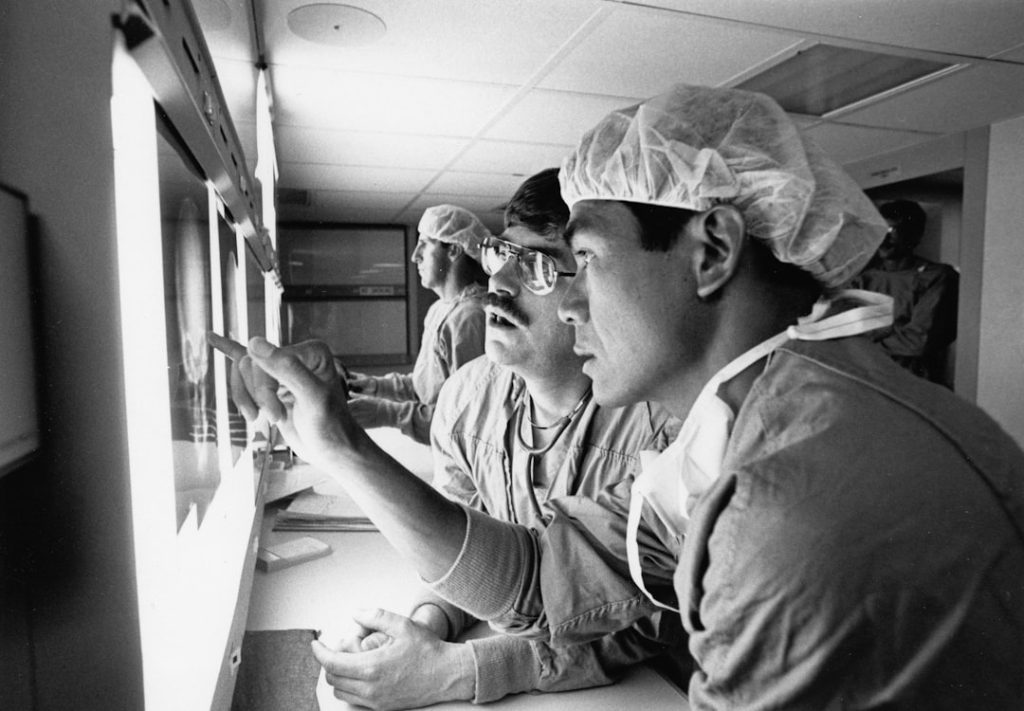Helios Clinical Research stands as a beacon of innovation and integrity in the realm of medical research. Established with the mission to advance healthcare through rigorous scientific inquiry, Helios has carved a niche for itself by conducting high-quality clinical trials that span a diverse array of therapeutic areas. The organization is dedicated to bridging the gap between laboratory discoveries and real-world applications, ensuring that new treatments are not only effective but also safe for public use.
With a team of seasoned professionals, including physicians, researchers, and regulatory experts, Helios is committed to upholding the highest standards of scientific rigor and ethical conduct. The name “Helios” itself evokes imagery of light and enlightenment, symbolizing the organization’s commitment to illuminating the path toward medical advancements. By focusing on patient-centered research, Helios Clinical Research aims to address unmet medical needs and contribute to the development of innovative therapies that can significantly improve patient outcomes.
The organization’s comprehensive approach encompasses everything from initial study design to post-trial analysis, ensuring that each phase of research is meticulously executed and aligned with regulatory requirements.
Key Takeaways
- Helios Clinical Research plays a vital role in advancing medical science through innovative clinical trials.
- Patient participation is crucial for the success and development of new medical treatments.
- Helios prioritizes patient safety and ethical standards throughout all clinical research activities.
- Collaborations and partnerships enhance the effectiveness and reach of Helios’s medical research efforts.
- Helios Clinical Research is positioned to significantly impact the future of healthcare and medical breakthroughs.
The Role of Clinical Trials in Advancing Medical Science
Clinical trials serve as the cornerstone of modern medical science, providing a structured framework for evaluating the safety and efficacy of new treatments. These trials are essential for translating laboratory findings into viable therapeutic options that can be administered to patients. By systematically testing new drugs, devices, and treatment protocols, clinical trials generate the evidence needed to inform clinical practice and regulatory decisions.
The rigorous methodology employed in these studies not only helps in identifying potential benefits but also in uncovering adverse effects that may not have been apparent during preclinical testing. Moreover, clinical trials are instrumental in fostering innovation within the healthcare sector. They allow researchers to explore novel hypotheses and test cutting-edge technologies that could revolutionize patient care.
For instance, recent advancements in gene therapy and personalized medicine have emerged from clinical trials that rigorously assessed their potential benefits and risks. As such, these trials not only contribute to the scientific body of knowledge but also pave the way for breakthroughs that can transform treatment paradigms across various medical disciplines.
Helios Clinical Research’s Contribution to Medical Breakthroughs

Helios Clinical Research has played a pivotal role in numerous medical breakthroughs that have significantly impacted patient care. By conducting trials across a wide range of therapeutic areas—including oncology, cardiology, neurology, and infectious diseases—Helios has contributed to the development of innovative therapies that address critical health challenges. For example, their involvement in trials for novel cancer immunotherapies has led to the approval of treatments that harness the body’s immune system to fight tumors more effectively than traditional chemotherapy.
In addition to its contributions in oncology, Helios has also been at the forefront of research in chronic diseases such as diabetes and hypertension. Through carefully designed clinical trials, the organization has helped validate new medications that improve glycemic control and reduce cardiovascular risks in diabetic patients. These contributions not only enhance treatment options but also provide healthcare providers with evidence-based guidelines for managing complex conditions.
The impact of Helios’s work extends beyond individual studies; it shapes clinical practice and influences health policy on a broader scale.
The Importance of Patient Participation in Clinical Trials
| Metric | Description | Impact on Clinical Trials |
|---|---|---|
| Enrollment Rate | Percentage of eligible patients who agree to participate | Higher participation accelerates trial completion and data collection |
| Retention Rate | Percentage of participants who complete the trial | Improves data reliability and reduces trial costs |
| Patient Diversity | Representation of different demographics (age, gender, ethnicity) | Ensures results are generalizable and applicable to broader populations |
| Patient-Reported Outcomes (PROs) | Data collected directly from patients about their health status | Provides valuable insights into treatment effectiveness and quality of life |
| Adherence to Protocol | Degree to which patients follow trial procedures and medication schedules | Enhances validity of trial results and safety monitoring |
| Patient Engagement Level | Extent of active involvement in decision-making and feedback | Improves trial design relevance and participant satisfaction |
Patient participation is a critical element in the success of clinical trials, as it directly influences the quality and applicability of research findings. Engaging patients in the research process ensures that studies are designed with their needs and preferences in mind, ultimately leading to more relevant outcomes. Furthermore, patient involvement can enhance recruitment efforts, as individuals are more likely to participate when they feel their voices are heard and their experiences valued.
This collaborative approach fosters a sense of ownership among participants, which can lead to higher retention rates throughout the trial. Moreover, patient participation is essential for capturing diverse perspectives that reflect real-world experiences with diseases and treatments. This diversity is crucial for understanding how different populations respond to therapies, as genetic, environmental, and socio-economic factors can all influence treatment efficacy.
By actively involving patients from various backgrounds, Helios Clinical Research ensures that its findings are generalizable and applicable to a broader population. This commitment to inclusivity not only enriches the research process but also enhances the overall quality of healthcare by addressing disparities in treatment access and outcomes.
How Helios Clinical Research Ensures Patient Safety and Ethical Conduct
At Helios Clinical Research, patient safety is paramount. The organization adheres to stringent ethical guidelines and regulatory standards designed to protect participants throughout the research process. Before any trial commences, a comprehensive review is conducted by an independent Institutional Review Board (IRB) to evaluate the study’s design, potential risks, and benefits.
This oversight ensures that all ethical considerations are addressed and that participants are fully informed about their rights and responsibilities before consenting to participate. In addition to pre-trial assessments, Helios implements robust monitoring systems during the trial to ensure ongoing safety. This includes regular assessments of adverse events and close communication with participants regarding any changes in their health status.
The organization prioritizes transparency by providing participants with updates on trial progress and findings, fostering trust between researchers and participants. By maintaining a strong ethical framework and prioritizing patient safety, Helios Clinical Research not only complies with regulatory requirements but also cultivates a culture of respect and integrity within its research endeavors.
The Future of Medical Research and Helios Clinical Research’s Role

As we look toward the future of medical research, organizations like Helios Clinical Research will continue to play a vital role in shaping the landscape of healthcare innovation. The rapid pace of technological advancement—particularly in areas such as artificial intelligence, big data analytics, and telemedicine—presents both opportunities and challenges for clinical research. Helios is poised to leverage these advancements to enhance trial design, streamline data collection processes, and improve patient engagement strategies.
One promising area for future exploration is the integration of real-world evidence into clinical trial methodologies. By utilizing data from electronic health records, wearable devices, and patient-reported outcomes, Helios can gain deeper insights into treatment effectiveness outside controlled environments. This approach not only enriches the data collected during trials but also allows for more personalized treatment strategies that align with individual patient needs.
As Helios continues to adapt to these evolving trends, its commitment to advancing medical science will remain steadfast.
Collaborations and Partnerships in Advancing Medical Science
Collaboration is a cornerstone of successful clinical research, enabling organizations like Helios Clinical Research to pool resources, expertise, and knowledge in pursuit of common goals. By forging partnerships with academic institutions, pharmaceutical companies, and healthcare providers, Helios enhances its research capabilities and expands its reach within the scientific community. These collaborations often lead to multi-center trials that increase participant diversity and improve the generalizability of findings.
For instance, partnerships with leading universities allow Helios to access cutting-edge research facilities and collaborate with top-tier scientists who bring unique insights into study design and execution. Additionally, alliances with pharmaceutical companies facilitate access to novel compounds and technologies that may not be available through traditional channels. Such collaborations not only accelerate the pace of discovery but also foster an environment where innovative ideas can flourish, ultimately benefiting patients who stand to gain from new therapies.
The Impact of Helios Clinical Research on Improving Healthcare
The impact of Helios Clinical Research on improving healthcare cannot be overstated. Through its unwavering commitment to scientific excellence, patient safety, and ethical conduct, Helios has established itself as a leader in clinical research. The organization’s contributions have led to significant medical breakthroughs that enhance treatment options across various therapeutic areas while addressing critical health challenges faced by diverse populations.
As Helios continues to navigate the complexities of modern medical research, its focus on collaboration, innovation, and patient engagement will remain central to its mission. By fostering an inclusive research environment that values patient perspectives and prioritizes safety, Helios Clinical Research is not only advancing medical science but also shaping the future of healthcare for generations to come.




